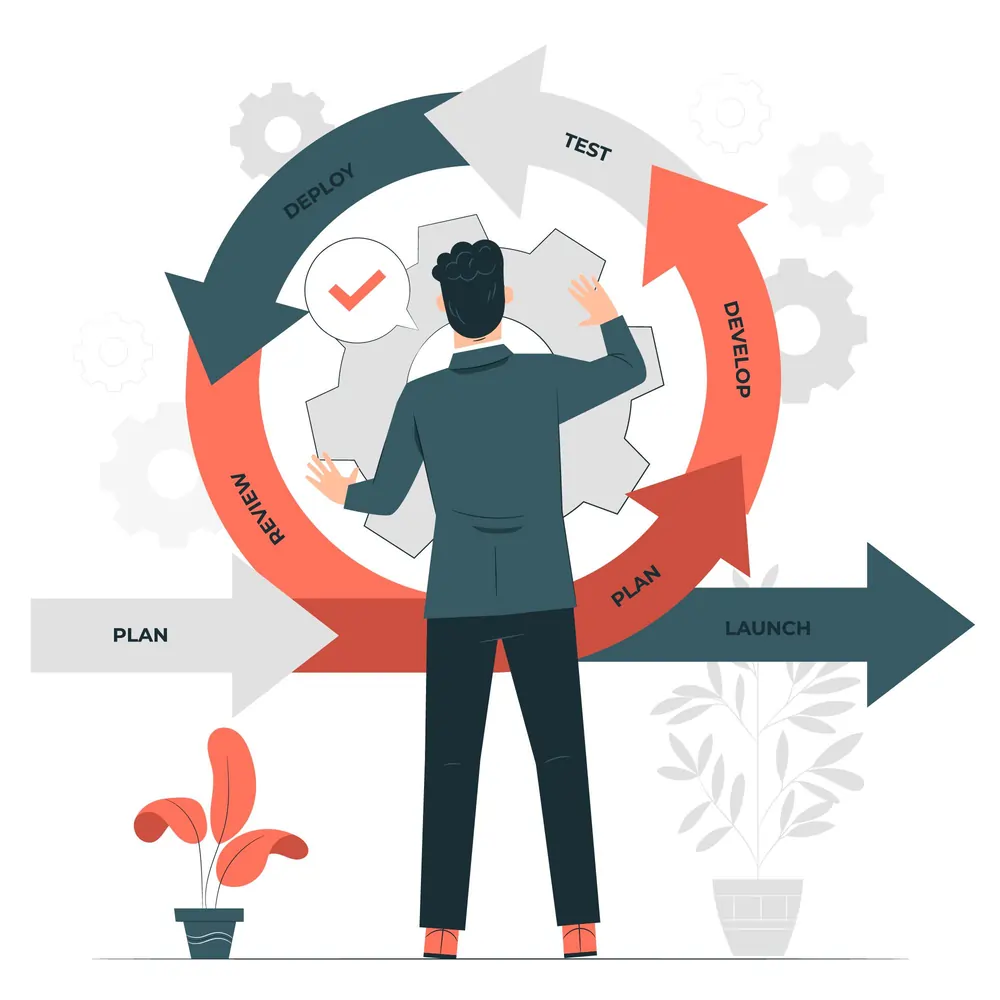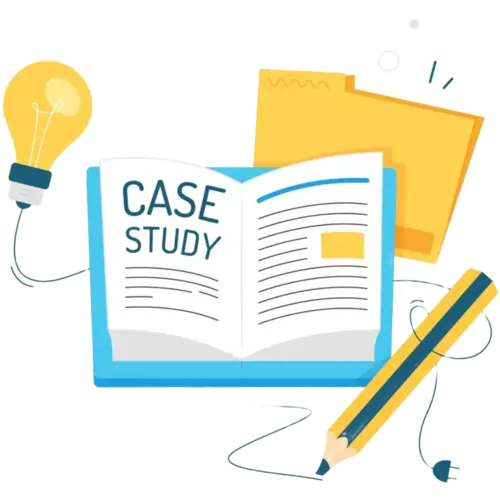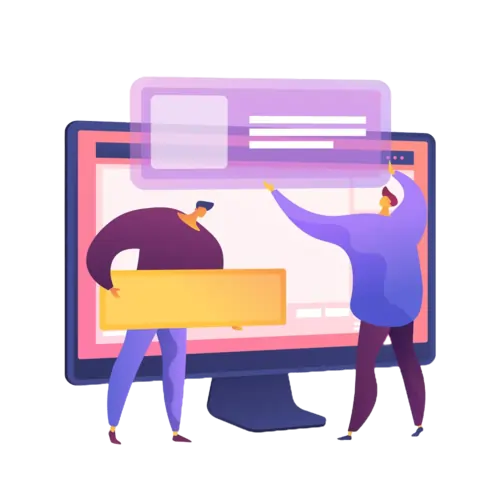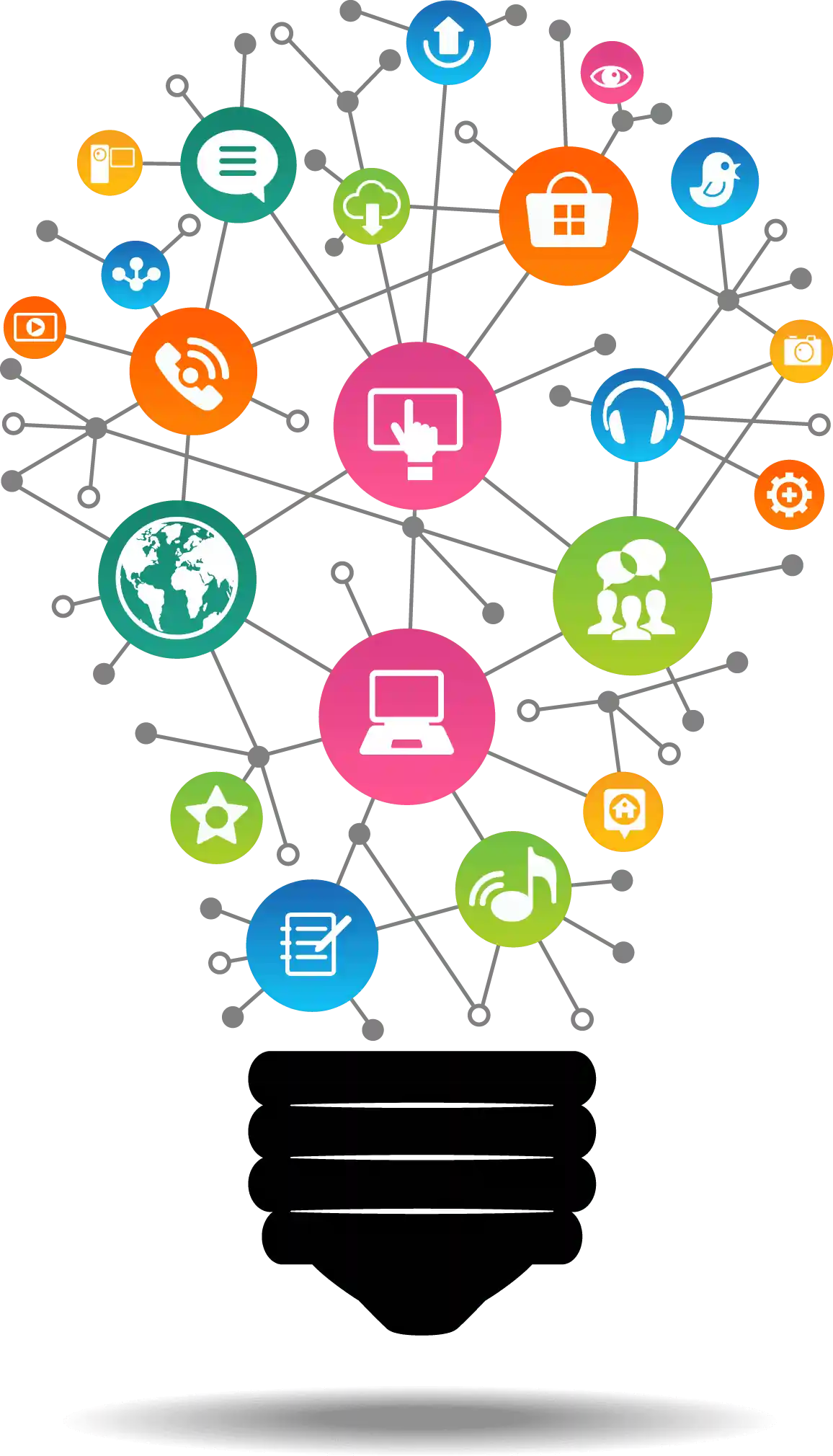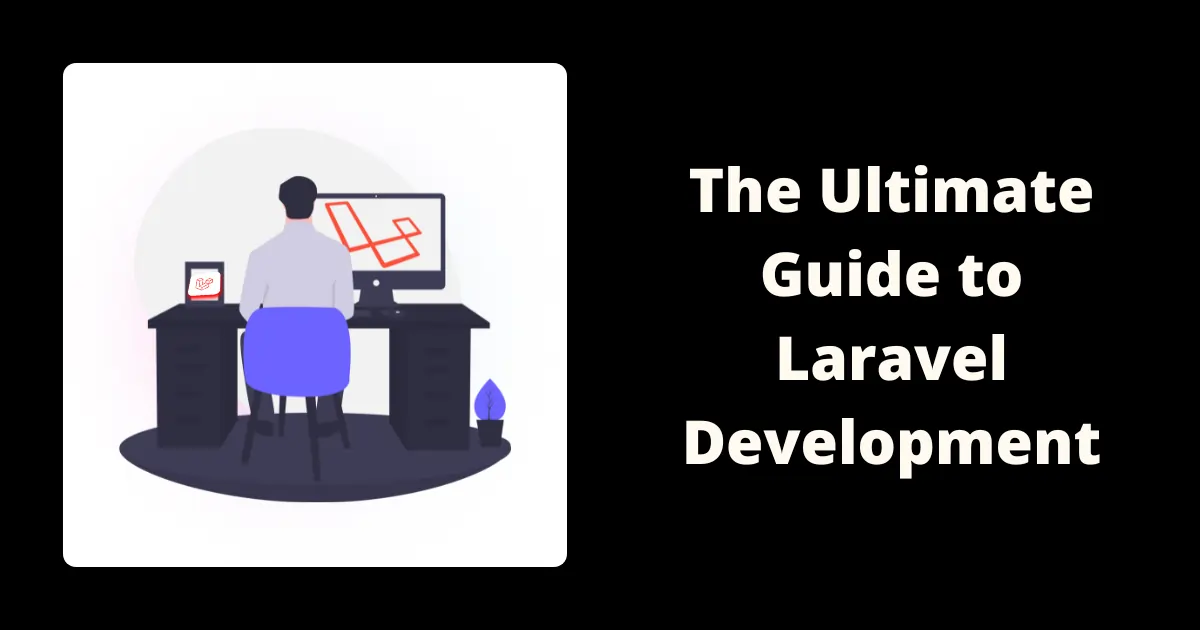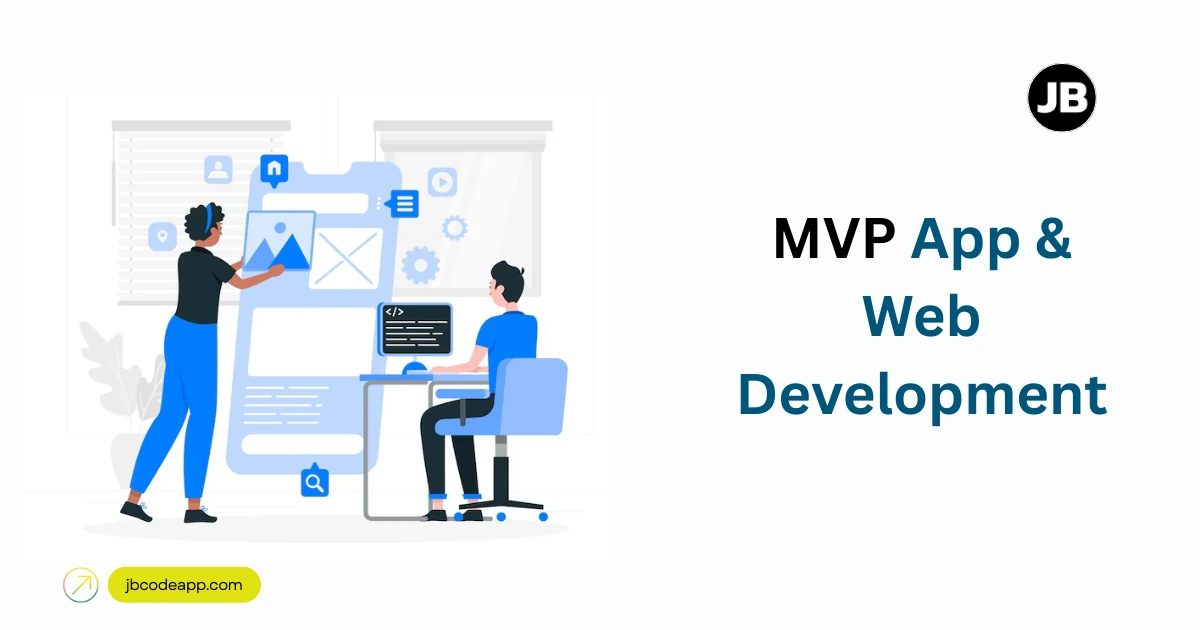Best PHP Frameworks and Trends in 2025 for Web Development
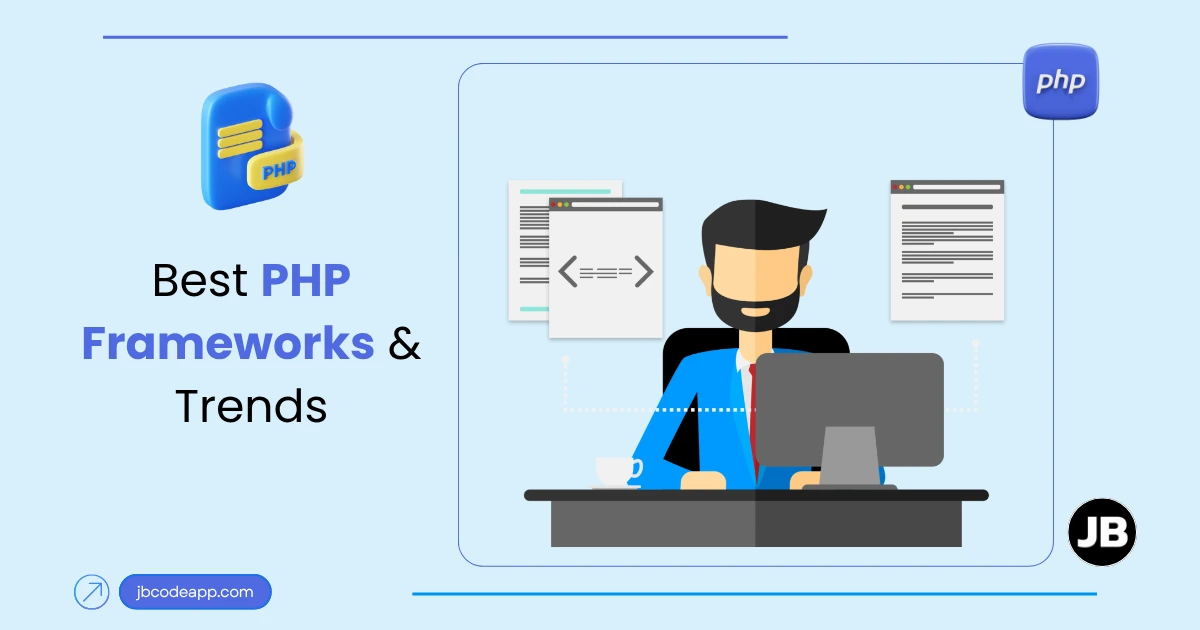
Overview
Introduction
In 2025, PHP continues to power the web with robust frameworks that support scalable, secure, and fast web applications. While other languages have gained popularity, PHP holds a strong position due to its evolving ecosystem and supportive community.
Choosing the right framework can make or break your project. That’s why understanding the current PHP trends and the strengths of each framework is vital for both beginners and seasoned developers. In this blog, we’ll explore the top 10 PHP frameworks, trends shaping the future, and how to choose the right one for your business or project.
Why Use a PHP Framework in 2025?
In 2025, PHP frameworks continue to be essential for building fast, secure, and maintainable web applications. Rather than writing everything from scratch, developers can leverage pre-built structures, libraries, and components that speed up development, enhance code quality, and reduce bugs. Whether you're a startup building an MVP or an enterprise scaling a large web platform, frameworks like Laravel, Symfony, and CodeIgniter streamline your development workflow.
Frameworks are more than just tools—they provide structure, reusable code, and security.
Key Benefits of Using PHP Frameworks:
-
Speed: Pre-built libraries reduce development time. PHP frameworks come with ready-to-use components such as routing systems, form validation, and authentication modules. These reduce the need to code everything from scratch, allowing developers to deliver projects faster and more efficiently—ideal for MVPs or tight deadlines.
-
Security: Built-in protections against common threats like XSS and SQL injection. Most PHP frameworks are built with security as a core priority. They offer integrated protection against common web vulnerabilities like Cross-Site Scripting (XSS), SQL Injection, and Cross-Site Request Forgery (CSRF). This saves you from manually implementing complex security measures and ensures your application is safer from cyber threats.
-
Scalability: Easily scale apps with modular architecture. As your application grows, maintaining clean code and structure becomes crucial. Frameworks support modular coding practices and offer tools that make scaling seamless—whether you're adding new features, integrating APIs, or handling more user traffic.
-
Support: Active communities and frequent updates. PHP frameworks like Laravel, Symfony, and CodeIgniter are backed by vibrant communities and contributors. This means access to regular updates, detailed documentation, online tutorials, and community forums—making it easier to troubleshoot issues and implement best practices.
-
MVC Support: Cleaner separation of concerns, making apps easier to maintain. The Model-View-Controller (MVC) architecture is a fundamental benefit of most PHP frameworks. It separates business logic, presentation, and data management, leading to cleaner code, easier debugging, and more maintainable projects—especially when multiple developers are involved.
If you’re just starting out, these frameworks offer the best PHP frameworks for beginners too.
Top PHP Frameworks to Use in 2025
PHP continues to evolve, and with it, the frameworks that empower developers to build robust, scalable, and secure applications. In 2025, choosing the right PHP framework is crucial for accelerating development, maintaining code quality, and ensuring your project can grow seamlessly.
Whether you’re developing a simple website, a complex enterprise solution, or a feature-rich SaaS product, the right framework provides the foundation you need to succeed. Frameworks streamline repetitive tasks, enforce best practices, and bring powerful tools right out of the box—saving time and reducing bugs.
Let’s break down the most popular and powerful PHP frameworks this year.
Laravel

Laravel continues to dominate the PHP ecosystem in 2025 and is widely regarded as the best PHP framework for building modern, feature-rich web applications. Its elegant syntax, powerful tooling, and vast ecosystem make it the go-to choice for startups, enterprises, and everything in between.
Whether you’re building a high-performance SaaS platform, a multi-tenant CRM, or a content-heavy eCommerce site, Laravel provides the flexibility, scalability, and developer experience required to succeed in today’s competitive digital landscape.
Highlights:
- Blade templating engine - Lightweight and powerful template engine for cleaner, reusable UI components.
- Artisan CLI - Command-line interface that speeds up repetitive tasks like migrations, seeding, and boilerplate code generation.
- Eloquent ORM - Intuitive ActiveRecord-style ORM that simplifies database interactions with elegant syntax.
- Laravel Breeze, Jetstream, Sanctum, Passport - Built-in authentication and API solutions for everything from basic auth to OAuth2.
- Great for: CRM, ERP, and enterprise apps - Integrated tools like Laravel Nova (admin panels), Laravel Vapor (serverless deployment), and Laravel Mix (asset compilation).
Explore our services: Laravel Application Development
Symfony
Symfony is a powerhouse framework favored for building enterprise-grade and highly scalable applications. Its component-based architecture allows developers to use only the parts they need, making it extremely flexible and modular. This approach promotes code reusability and reduces development time, especially for complex projects.
With its focus on long-term support (LTS), Symfony is a reliable choice for businesses that require stability and ongoing maintenance over several years. It integrates smoothly with major content management systems like Drupal and provides robust tools for building APIs, making it ideal for modern, service-oriented architectures.
Symfony’s vast ecosystem and extensive documentation empower developers to tackle large-scale web portals, eCommerce platforms, and enterprise applications with confidence. Additionally, its commitment to following PHP and web standards ensures that your project stays up-to-date with best practices and security protocols.
Preferred for enterprise-grade and scalable systems.
-
Component-Based Architecture
Allows you to use reusable, decoupled libraries for greater flexibility and faster development. -
Reusable Libraries
Helps reduce redundancy and speeds up project timelines by leveraging existing, tested components. -
Long-Term Support (LTS)
Provides stability and security updates for extended periods, ideal for enterprise projects. -
Excellent for Large Projects
Perfect for building complex web portals, APIs, and service-oriented architectures. -
Integration Friendly
Works seamlessly with CMS like Drupal and third-party libraries. -
Adherence to Standards
Follows PHP and web best practices for maintainability and security.
CodeIgniter
CodeIgniter is a lightweight and beginner-friendly PHP framework known for its simplicity and ease of use. Its small footprint and straightforward installation process make it an excellent choice for developers new to PHP frameworks or those working on smaller projects.
The framework offers great documentation, which helps speed up the learning curve and allows developers to get started quickly. Despite its simplicity, CodeIgniter is powerful enough to build dynamic websites and applications with efficient performance.
Ideal for quick development cycles, CodeIgniter is perfect for blogs, small business websites, and lightweight applications where ease of use and speed are priorities.
-
Small Footprint
Minimalistic design that requires fewer resources and ensures faster performance. -
Easy Installation
Simple setup process without complex configuration, ideal for beginners. -
Great Documentation
Comprehensive guides and tutorials to help developers get started quickly. -
Perfect for Small Projects
Well-suited for blog sites, small business apps, and simple web portals.
Yii2

Yii2 is a high-performance PHP framework known for its speed, extensibility, and modern tools. It's built with performance in mind and comes with a range of powerful features that simplify web application development. Yii2 is especially popular among developers building complex applications like eCommerce platforms or custom CMS solutions.
Its built-in tools like the Gii code generator speed up development by automatically creating models, controllers, and forms. Additionally, features like RBAC, caching, and strong security components make Yii2 a smart choice for scalable and secure web applications.
-
Gii Code Generator
Speeds up development by generating models, forms, and CRUD operations with minimal manual coding. -
Role-Based Access Control (RBAC)
Provides flexible and secure user permissions management for complex access structures. -
Caching Support
Enhances performance through built-in support for data and page caching. -
Common in eCommerce and CMS
Ideal for building scalable content management systems and robust online stores.
Laminas (Formerly Zend)
Laminas, the successor to the Zend Framework, is a professional-grade PHP framework trusted by enterprise teams worldwide. Built with modern development in mind, Laminas is entirely object-oriented and follows strict coding standards, making it a preferred choice for robust, long-term projects.
Its modular MVC architecture allows developers to reuse components or build applications using only what’s needed—offering flexibility and maintainability at scale. Laminas is especially suitable for building high-performance APIs, integrating with legacy systems, or powering mission-critical enterprise applications.
-
Object-Oriented
Fully OOP-based with support for namespaces and design patterns, encouraging clean and maintainable code. -
Modular MVC Architecture
Enables component reusability and separation of concerns, which simplifies scaling and long-term maintenance. -
Excellent for APIs and Legacy Systems
Ideal for creating RESTful APIs or integrating with existing enterprise infrastructure.
Phalcon
Phalcon is a unique and ultra-fast PHP framework delivered as a C extension, making it one of the fastest frameworks available. Its architecture allows it to use significantly fewer resources, leading to faster execution and lower memory consumption compared to traditional PHP frameworks.
Despite its speed, Phalcon doesn’t compromise on features. It includes powerful tools for routing, ORM, caching, and more—making it a solid choice for developers building high-performance web applications, especially those that require real-time processing or handle large volumes of data.
-
Low Memory Usage
As a C extension, it consumes fewer server resources while maintaining fast response times. -
High Performance
Designed for speed, making it ideal for applications with heavy traffic or performance-critical operations. -
Suitable for Real-Time Apps
Great for building apps that demand real-time interaction, such as chat systems, live feeds, or analytics dashboards.
FuelPHP
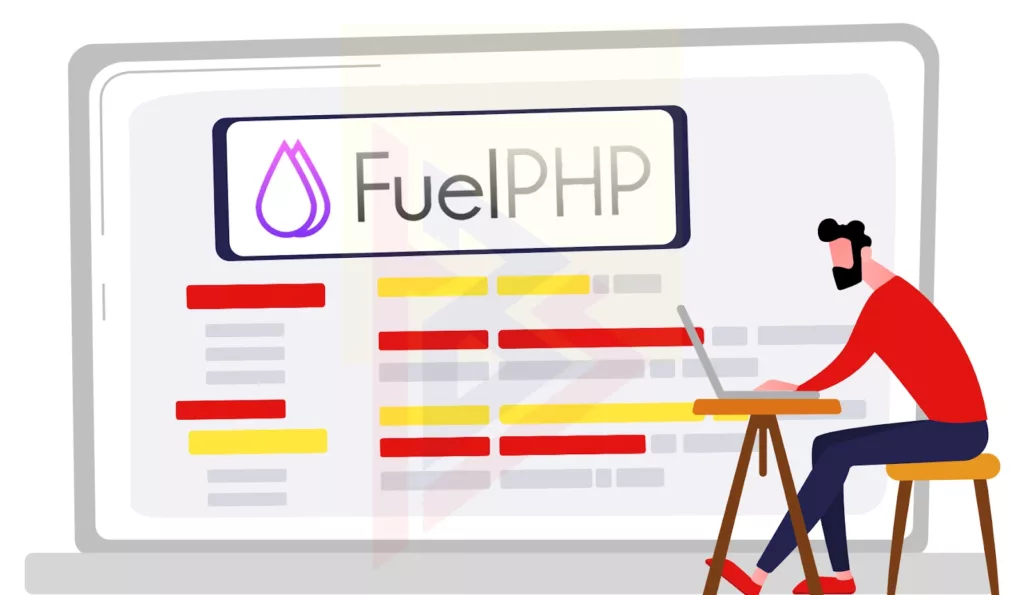
FuelPHP is a powerful, full-stack PHP framework known for its flexibility and modular design. It supports the Hierarchical Model-View-Controller (HMVC) architecture out of the box, enabling better code organization and reuse—especially in large-scale applications.
Built with security and performance in mind, FuelPHP is well-suited for developers who want a customizable framework without sacrificing modern development standards. It's also RESTful-ready, making it ideal for API-driven applications and service-oriented architectures.
-
HMVC Support
Offers built-in Hierarchical MVC structure for cleaner code separation and improved modularity. -
RESTful Services Ready
Supports building RESTful APIs natively, making integration with mobile apps and frontend frameworks seamless. -
Good for Apps Needing Modularity
Ideal for projects that require a well-organized and scalable architecture, such as SaaS platforms and internal enterprise tools.
Slim
Slim is a micro-framework designed for building fast, minimalist web applications and RESTful APIs. With a focus on simplicity and performance, it provides just the essentials—making it perfect for developers who want to create lightweight applications without unnecessary overhead.
Slim’s architecture is middleware-based, which offers flexibility in how requests and responses are handled. It's particularly well-suited for internal tools, microservices, or any application where speed and simplicity are top priorities.
-
Middleware Support
Flexible request/response handling with custom middleware layers, ideal for complex routing and authentication flows. -
Fast and Minimal
Lightweight footprint ensures rapid performance, perfect for developers who want full control over their stack. -
Ideal for APIs and Internal Tools
Perfect for building RESTful APIs, admin panels, or services that don’t require a full-stack framework.
CakePHP
CakePHP is a time-tested framework that emphasizes rapid development through the “convention over configuration” philosophy. This approach streamlines the coding process by reducing the need for manual configuration, allowing developers to get up and running quickly.
With built-in code generation tools and out-of-the-box support for common tasks like CRUD operations, CakePHP is especially well-suited for MVPs, startup applications, and admin dashboards. Its clear structure and helpful conventions make it beginner-friendly while still being powerful enough for scalable applications.
-
Code Generation Tools
Automate boilerplate code creation to speed up development and maintain consistency. -
CRUD Support
Provides quick and easy implementation of Create, Read, Update, Delete operations with minimal coding. -
Good for MVPs and Startup Projects
Ideal for launching minimum viable products or internal tools with tight timelines and limited resources.
Explore our CakePHP Framework Development services for fast and structured web applications.
Others Worth Mentioning
While the major PHP frameworks dominate most use cases, there are several other lightweight or specialized tools worth considering depending on your project needs:
-
Lumen
Laravel’s micro-framework built for blazing-fast microservices and APIs. It retains Laravel's elegance but strips away the heavier features, making it perfect for lightweight and high-performance RESTful services. -
TALL Stack
A modern full-stack development approach combining Tailwind CSS, Alpine.js, Laravel, and Livewire. It’s ideal for building reactive web applications without heavy frontend frameworks like React or Vue. -
Medoo
An extremely lightweight SQL database framework that simplifies complex queries with a minimal footprint. Great for small apps or integrating database logic into existing projects. -
Fat-Free Framework (F3)
A modular and easy-to-use micro-framework that supports URL routing, caching, and more with minimal overhead. Suitable for developers who want control and simplicity in one package.
These tools may not be as full-featured as Laravel or Symfony, but they offer excellent performance and flexibility for the right kinds of applications.
Looking for help with PHP development? Let’s connect and bring your vision to life!
PHP Framework Popularity Trends in 2025
The PHP ecosystem continues to evolve in 2025, with a strong emphasis on performance, developer experience, and modern application architecture. Here are the leading trends shaping PHP frameworks this year:
-
Laravel still dominates GitHub stars and developer forums. Its comprehensive features, elegant syntax, and vast ecosystem make it the go-to framework for developers ranging from startups to large enterprises.
-
Micro-frameworks like Slim and Lumen are on the rise due to the API-first approach. These lightweight frameworks are ideal for building fast, scalable RESTful services and microservices, helping developers deliver performant APIs with minimal overhead.
-
Frameworks with large ecosystems and community support remain the top choice. Active communities mean better documentation, regular updates, and a wealth of plugins and packages that accelerate development.
-
Integration with modern technologies such as GraphQL, serverless architecture, and AI-powered tools is influencing framework adoption. PHP frameworks that seamlessly support these technologies are gaining traction.
-
Focus on security continues to shape framework popularity. Built-in security features and compatibility with automated vulnerability scanning tools make frameworks like Symfony and Laravel highly trusted for enterprise applications.
-
Performance improvements like PHP 8.x's JIT (Just-In-Time) compilation enhance framework responsiveness, encouraging developers to adopt frameworks that maximize these benefits.
-
Cloud-native and container-friendly frameworks are preferred, as more PHP applications are deployed in Docker and Kubernetes environments, allowing for better scalability and maintenance.
Overall, PHP frameworks in 2025 are not just about building websites but delivering complex, scalable, and secure applications that fit into modern development workflows and infrastructure.
Emerging Trends in PHP Development for 2025
PHP continues to be one of the most popular and versatile programming languages powering the web. As technology evolves rapidly, PHP development is also adapting to new demands and opportunities. In 2025, several key trends are shaping how developers build modern, efficient, and secure applications.
These include the rise of microservices and headless architectures for greater flexibility, the adoption of GraphQL and API-first approaches to optimize data handling, and the growing use of serverless deployments with tools like Bref. Additionally, AI and automation are enhancing development workflows, while security-first practices ensure robust protection against emerging threats. Together, these trends are driving the future of PHP development toward more scalable, intelligent, and resilient web applications.
Microservices and Headless Architecture
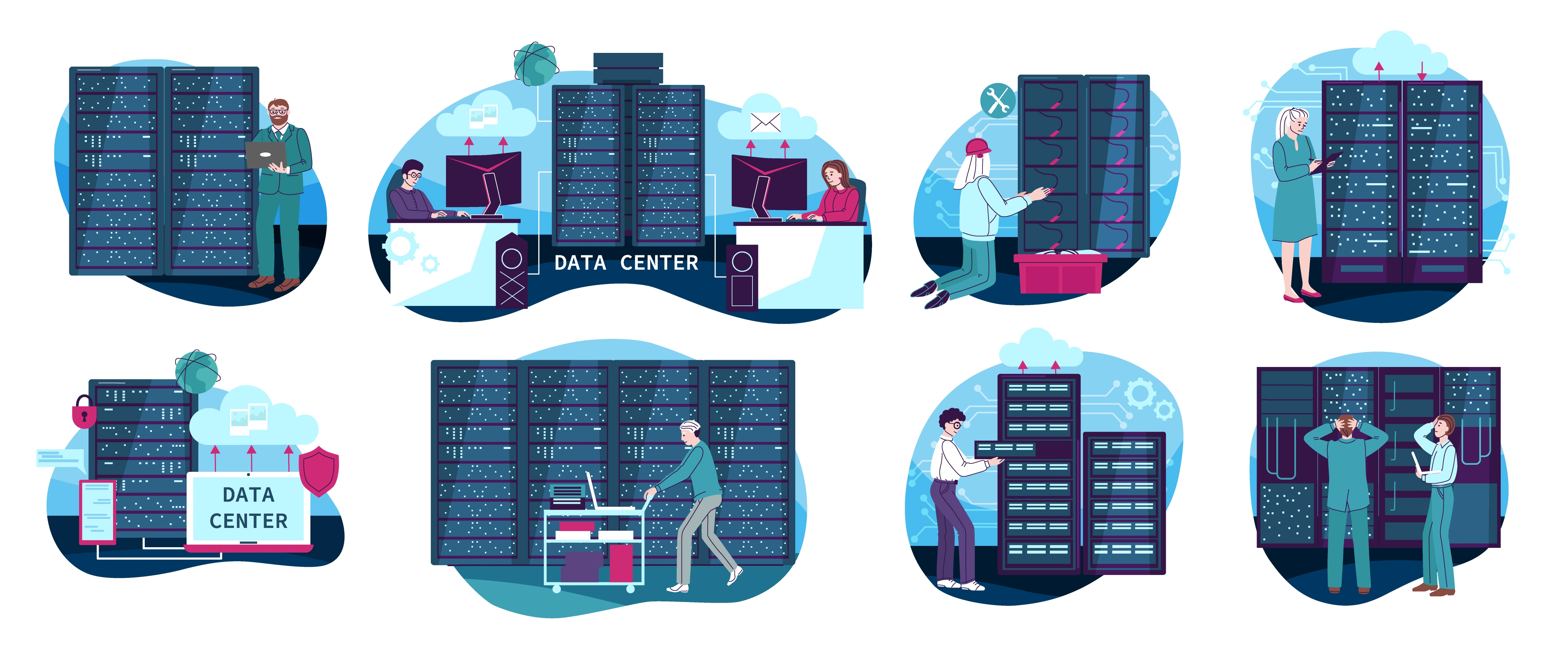
The adoption of microservices and headless architecture is reshaping PHP development. By decomposing applications into smaller, independently deployable services, developers can achieve greater flexibility and scalability. Headless CMS platforms enable teams to manage content separately from the frontend, delivering it via APIs.
Additionally, this architecture supports multi-channel delivery, meaning content can be pushed to web apps, mobile apps, IoT devices, and more, all from a centralized backend. The separation of concerns also improves team collaboration and speeds up iteration cycles.
- Headless CMS and commerce solutions are booming.
- PHP frameworks now focus on decoupled architecture and APIs.
Real-World Example: A prominent banking platform transitioned from a monolithic PHP application to a serverless microservices architecture using AWS Lambda and Bref. This migration allowed for improved scalability, security, and cost-efficiency, highlighting the feasibility of modern architectures even in regulated industries.
GraphQL and API-first
GraphQL is gaining traction in PHP development for its ability to allow clients to request exactly the data they need, reducing over-fetching and under-fetching. PHP developers are leveraging tools like Lighthouse to integrate GraphQL into Laravel applications, while Laravel Passport and Sanctum provide secure token-based authentication.
Besides optimizing data queries, GraphQL also promotes better versioning and backward compatibility, making it easier to evolve APIs without breaking existing clients. This API-first mindset encourages designing APIs before the UI, which leads to better developer experiences and faster frontend-backend integration.
- Laravel Sanctum and Passport streamline token-based APIs.
- Packages like Lighthouse enable GraphQL with Laravel.
Real-World Example: GitHub's GraphQL API enables developers to access data about repositories, issues, pull requests, and users. This API allows for the creation of custom dashboards or tools that interact with GitHub data without the complexity associated with traditional REST endpoints.
Serverless PHP
Serverless architecture is becoming increasingly popular in PHP development, particularly with tools like Bref that facilitate deploying PHP applications on AWS Lambda. This approach eliminates the need for traditional server management, offering cost-efficiency and scalability.
Serverless also supports event-driven architectures, ideal for background jobs, image processing, or API request handling with automatic scaling. Additionally, serverless deployments reduce operational overhead, freeing up developers to focus on core business logic.
-
Tools like Bref make it easy to deploy PHP apps on AWS Lambda without managing servers.
-
Serverless offers automatic scaling and reduces costs by charging only for actual usage.
-
It’s ideal for background tasks, image processing, and API handling with minimal overhead.
Real-World Example: A Brazilian music streaming platform migrated from ECS to AWS Lambda using Bref, resulting in a 25% reduction in EC2 costs. This transition allowed the platform to efficiently handle 40 million daily requests.
AI and Automation
AI and automation tools are transforming PHP development by assisting with code generation, testing, and analytics. Integrations with platforms like GitHub Copilot and analytics APIs are enhancing developer productivity and enabling smarter applications.
Automated testing frameworks now incorporate AI to detect potential edge cases or suggest test improvements. Meanwhile, predictive analytics help businesses anticipate user behavior and optimize features in real-time.
- PHP tools powered by AI help with testing and analytics.
- Integrations with GPT and analytics APIs are increasing.
Real-World Example: Spotify utilizes AI-driven algorithms to recommend personalized playlists to users based on their listening habits. These recommendations are powered by machine learning models analyzing user behavior and preferences.
Security-First Development
Security remains a top priority in PHP development, with frameworks like Laravel and Symfony offering built-in protection against common vulnerabilities. Tools like Snyk are also used to automate vulnerability scanning and remediation in PHP applications.
Modern PHP development also emphasizes secure coding practices, regular dependency updates, and multi-factor authentication integration. Security training for developers is becoming more widespread to prevent issues at the source.
- Laravel and Symfony offer automatic protection against threats.
- Devs use tools like Snyk for automated vulnerability scanning.
Real-World Example: Netflix employs a security-first approach by implementing robust encryption protocols and access controls to protect user data. The company conducts regular security audits and penetration testing to identify and mitigate potential vulnerabilities.
Need PHP Development Experts?
Request a Quote
Choosing the Right PHP Framework
Selecting the right PHP framework is crucial for the success of your web development project. Consider these key questions before making a decision:
- How complex is your application going to be?
- Do you need scalability from day one or expect rapid growth later?
- Does your team have experience with certain frameworks?
- What are your long-term maintenance and expansion plans?
For beginners and small to medium projects, frameworks like Laravel, CodeIgniter, and CakePHP are excellent choices. They offer simplicity, rich documentation, and a large community, making it easier to get started and build quickly.
For larger enterprise applications requiring robust architecture, high scalability, and long-term support, Symfony, Laravel, and Laminas are preferred. These frameworks provide advanced features, modular components, and flexibility to build complex systems.
Other trending frameworks gaining popularity in 2025 include Phalcon, known for its speed and low resource consumption, and Yii, favored for rapid development with security features built-in.
Real-World Example:
Many businesses trust jbcodeapp PHP experts to choose and implement the right PHP framework tailored to their needs. With their expertise, you can get your project up and running successfully — faster and with fewer headaches.
In summary, your choice should align with your project’s requirements, developer expertise, and future growth plans. Staying updated with the latest PHP frameworks helps you leverage the best tools available for efficient and scalable web development.
Ready to take your web development to the next level?
Hire PHP developers who bring deep expertise and proven experience to your project.
Future Outlook
PHP continues to evolve with features like JIT in PHP 8.x improving performance, and upcoming PHP 9 promising better asynchronous programming. PHP’s role in cross-platform and hybrid app development via APIs remains strong, ensuring its relevance for years to come.
-
PHP 8.x with JIT:
The introduction of Just-In-Time (JIT) compilation in PHP 8.x marks a major leap in performance, enabling PHP scripts to run much faster by compiling parts of the code at runtime. This enhancement is especially beneficial for CPU-intensive tasks like complex calculations, image processing, and large data handling, making PHP more competitive with other high-performance languages. -
PHP 9 Async Capabilities:
PHP 9 is set to bring powerful asynchronous programming features, transforming how PHP handles tasks that require waiting, such as I/O operations or external API calls. With better async support, developers can write non-blocking code that improves application responsiveness and scalability—key for real-time applications like chat systems, gaming servers, and live data streaming. -
Cross-Platform Development:
PHP continues to be a backbone for cross-platform and hybrid development by serving as a reliable backend for RESTful and GraphQL APIs. These APIs enable smooth data exchange between different clients, whether web browsers, mobile apps, or desktop software. This flexibility helps businesses deliver consistent user experiences across devices while streamlining development and maintenance efforts.
Final Thoughts
From Laravel to Slim, each PHP framework in 2025 serves a unique purpose. Whether you're building a complex enterprise solution or a lightweight API, there’s a framework perfectly suited to your project’s needs.
This blog covered the top PHP frameworks and emerging trends to help you stay ahead in web development. Understanding these tools and technologies ensures your projects are scalable, secure, and future-ready.
At jbcodeapp, our expert PHP developers leverage the latest frameworks and industry trends to deliver high-quality, tailored web solutions. Partner with us to get your PHP project done efficiently and successfully, with support every step of the way.

Build Future-Ready Apps with PHP Experts
Our developers are ready to help you choose and implement the right PHP framework.
Get StartedFrequently Asked Questions
1. What is the best PHP framework in 2025?
Laravel remains the top choice thanks to its intuitive syntax, extensive features, and strong community support. It simplifies complex tasks like authentication, routing, and caching, making development faster and more enjoyable.
2. Which PHP framework is best for beginners?
For newcomers, CodeIgniter and Laravel (with Lumen) offer gentle learning curves, clear documentation, and a supportive ecosystem. They allow beginners to build projects quickly while learning best practices.
3. Can I build enterprise apps with PHP?
Definitely! Frameworks like Symfony, Laravel, and Laminas provide the robustness, modularity, and scalability enterprises require. They are used by many large organizations to build secure, maintainable, and high-performance applications.
4. Is PHP still relevant in 2025?
Absolutely! PHP continuously evolves with modern features, performance improvements, and strong frameworks. It powers millions of websites and APIs worldwide and remains a reliable choice for web development.
5. What’s the best framework for RESTful APIs?
For building RESTful APIs, Slim, Laravel (with Sanctum), and Lumen are excellent options. They provide lightweight and flexible solutions that handle routing, authentication, and data formatting efficiently.
6. Which framework supports GraphQL?
Laravel supports GraphQL through packages like Lighthouse, making it easy to create flexible, efficient APIs that clients can query according to their needs.
7. Is PHP good for microservices?
Yes! Frameworks like Lumen, Slim, and Laravel, combined with container tools like Docker, make PHP well-suited for microservice architectures. This approach helps build scalable and maintainable distributed systems.
8. Is Laravel still popular?
Yes, Laravel continues to be the most popular PHP framework in 2025. Its developer-friendly features, active community, and constant updates keep it at the forefront of PHP development.
9. Do PHP frameworks support AI?
While PHP isn’t the primary language for AI development, it integrates smoothly with AI services and APIs, allowing you to build intelligent features like chatbots, recommendation engines, and analytics within your PHP applications.

